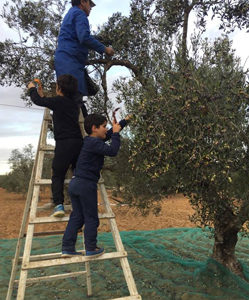
History
For thousands of years, olive oil had been prominent in all the greatest civilizations that have prospered in Tunisia. Indeed, the olive tree have been cultivated by Phoenicians, Greeks, Carthaginians, Romans and Arabs, in a tradition that has been passed down fromfather to son eversince.
Olive cultivation in Tunisia dates back to the 8th century BC, even before the founding of Carthage by the Queen Dido. The Phoenicians were the first to introducethis cultivation to North Africa.
In the Carthaginian period, olive cultivation started to spread granting several advantages to olive-growers. The expansion continued thanks to Romans who established intensified irrigation techniques and revolutionized olive oil extraction.
Excavations in Sufeitula (currentSbeitla) and Thysdrus (El Jem) as well as Roman mosaics discovered in Sousse, attest that, olive tree cultivation was spread throughout the whole country, historically speaking.
The study of archaeological and ethnographical objects, those having been collected on the territory in particular utensils, gives evidence of the importance that olive oil had in daily life of those who lived in the country.
Today, Tunisia became the biggest olive oil producer.

Benefits
- Extra Virgin Olive Oilis a Fantastic Source of Antioxidants and Healthy Fats
- More Olive Oil Could Help Reduce Your Risk of Heart Disease
- Olive Oil Protect Against Stroke
- Extra Virgin Olive Oil Help Lower Your Risk of Type 2 Diabetes
- Extra Virgin Olive Oilis the Best Cooking Oil
- Cooking With Extra Virgin Olive Oil MakeYour Food More Nutritious
- Olive Oil Consumption Improve Bone Health
- The Compounds in Olive Oil Protect Against Certain Cancers
- A Diet High in Extra Virgin Olive Oilbe Good for Brain Health
- Olive Oil Can Contribute to Health and Longevity
